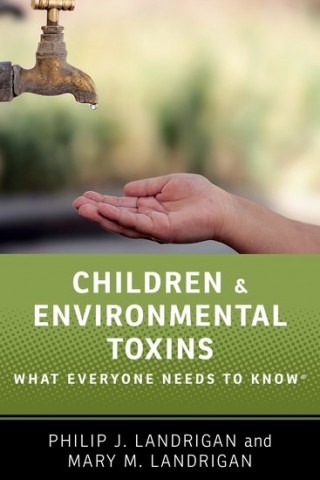Robert Chambers recently highlighted corruption, entomophagy, neglected tropical diseases, cookstove air pollution, climate change and ocean ecology as blindspots in his "Can We Know Better?" (2017) book. I think we ought to add environmental toxins and child health. Consider the following quotes from "Children & Environmental Toxins: What Everyone Needs to Know" (2018) by Landriagan and Landriagan (an overview book for non-experts published by Oxford University Press). As a background, it is worth noting that there have been rapid rises in infant and childhood cancers, asthma, allergies and autism in recent decades:
- "Research in children's environmental health and epidemiology shows us that infants and children are exquisitely vulnerable to toxic chemicals. Exposures during pregnancy and in early childhood to even very low level of lead, methylmercury, organophosphate pesticides, and polychlorinated biphenyls (PCBs) have all been proven to cause damage to children's developing brains that presents as IQ loss, shortened attention span, and disordered behavior. Early-life exposure to air pollution causes asthma, pneumonia, impaired lung growth, and sudden infant death. Prenatal exposures to solvents and pesticides are linked to childhood cancer. Endocrine disruptors, such as phthalates and bisphenol A, are associated with birth defects, diminished reproductive function, and disordered behavior." (p. xix)
- "A fundamental problem is that often little or no assessment is made of the safety or potential toxicity of new chemicals before they are brought to market. This failure to exercise due diligence makes it impossible to know which chemicals will be beneficial and which need to be treated with caution." (p. 11)
- "The majority of the 3,000 high-production-volume chemicals have not undergone even minimal assessment for safety or potential toxicity. Only approximately 20% of high-production-volume chemicals have been screened for their potential to disrupt early human development or to cause disease in infants and children. Accordingly, we have no knowledge of the possible dangers to children of most of the synthetic chemicals in the world today." (p. 13)
- "Only 10% to 20% of cancers in children are considered to be genetic. The remaining 80% to 90% are due to environmental factors - chemical and physical factors in the environment called environmental carcinogens." (p. 48)

